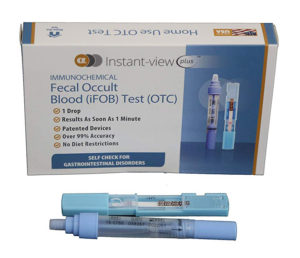
Dealing with a colon cancer diagnosis can be tough, as it requires adjusting to new treatment protocols, coping mechanisms, doctor’s appointments, hospitalizations and the uncertainty related to a cancer diagnosis. In addition to managing treatment with a doctor, there are many things that a person with colon cancer can do to help with their own care.
- Early diagnosis. The key to any cancer diagnosis is early treatment and intervention. Understanding your risk for developing colon cancer and regular screening with the doctor or with at-home screening tests like the ALFA fecal occult blood test is essential for prompt diagnosis and treatment.
- Educate yourself. Knowing what to expect from the course of the disease, as well as the treatment plan is very important! A knowledgeable patient can have educated conversations with the doctor about treatment options and make informed decisions along the way. It is also empowering to have an understanding of the different side effects and what to expect.
- Getting support. Anyone with a colon cancer diagnosis should make sure that they find support, whether that is a support group or professional with experience in treating people with cancer. Cancer can have profound effects on one’s mental health and has been linked with both anxiety and depression. Prioritizing mental health in addition to physical health is key to recovery and self-management of cancer.
- Stop smoking. Smoking cigarettes is associated with an increased risk of developing colon cancer. Someone who smokes should make an effort to quit as soon as possible. There are a number of national organizations, like SmokeFree and the American Cancer Society that can provide support and information for anyone looking to quit using tobacco or tobacco products.
- Manage your diet. Diet is an important part of self-care with colon cancer and even into survivorship. Dietary needs will change during initial treatment, after surgery, and into recovery. Immediately after surgery, the surgeon usually recommends a low-residue diet, consisting of white bread, white rice and other foods that don’t require a lot of digestive work by the colon. People dealing with colon cancer should speak with their doctor, nurse or nutritionist about their dietary needs as they progress through treatment.
Self-management is a crucial part of dealing with colon cancer. Learning about the disease and being an active participant in your care are two ways to feel strong and empowered as you navigate through this journey and everything it involves. Learn more about our products that can help detect early signs of colon cancer. Click here
